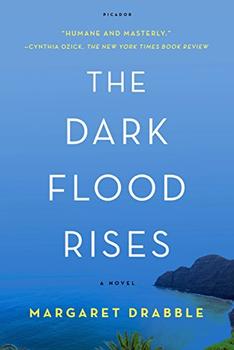Summary | Excerpt | Reviews | Beyond the Book | Readalikes | Genres & Themes | Author Bio

Francesca Stubbs is on her way to a conference on sheltered housing for the elderly, a subject pertinent to her train of thought, but not in itself heroic. Fran is something of an expert in the field, and is employed by a charitable trust which devotes generous research funds to examining and improving the living arrangements of the ageing. She's always been interested in all forms of social housing, and this new job suits her well. She's intrigued by the way more and more people in England opt to live alone, in the early twenty-first century. Students don't seem to mind cohabitation, even like it, and cohabitation is forced upon the ill and the elderly, but more and more of the able-bodied in their mid-life choose to live alone. This is making demands on the housing stock which successive governments are unable and possibly unwilling even to try to satisfy.
Fran is in favour of a land tax. That would shake things up a bit. But the English are extraordinarily tenacious of land. They hate to relinquish even a yard of it. The word 'freehold' has a powerful resonance.
No, there is nothing heroic about the housing stock and planning policy, subjects which currently occupy her working life, but old age itself is a theme for heroism. It calls upon courage.
Fran had from an unsuitably early age been attracted by the heroic death, the famous last words, the tragic farewell. Her parents had on their shelves a copy of Brewer's Dictionary of Phrase and Fable, a book which, as a teenager, she would morbidly browse for hours. One of her favourite sections was 'Dying Sayings', with its fine mix of the pious, the complacent, the apocryphal, the bathetic and the defiant. Artists had fared well: Beethoven was alleged to have said 'I shall hear in heaven'; the erotic painter Etty had declared 'Wonderful! Wonderful this death!'; and Keats had died bravely, generously comforting his poor friend Severn.
Those about to be executed had clearly had time to prepare a fine last thought, and of these she favoured the romantic Walter Raleigh's 'It matters little how the head lies, so the heart be right'. Harriet Martineau, who had suffered much as a child from religion, as Fran had later discovered, had stoically remarked, 'I see no reason why the existence of Harriet Martineau should be perpetuated', an admirably composed sentiment which had caught the child Fran's attention long before she knew who Harriet Martineau was. But most of all she had liked the parting words of Siward the Dane who had commanded his men: 'Lift me up that I may die standing, not lying down like a cow'. She didn't know why this appealed to her so strongly, as she was herself very unlikely to die on a battlefield. Maybe it meant she had Danish blood? Well, she probably had, of course, as many, perhaps most of us in England have. Or maybe she had liked the mention of the cow, which she heard as strangely affectionate, not as contemptuous.
She was much more likely to die on a motorway than on a battlefield.
The Vikings hadn't approved of dying quietly and comfortably in bed. Unlike her first husband Claude, who was currently making himself as comfortable as he could.
She has pulled away from the truck, and is now overtaking a dirty maroon family saloon with an annoying sticker about its 'Baby on Board'. There is an anonymous dirty white van just behind her now. It isn't raining, but it's dirty weather, and there's grimy February splatter and spray on her windscreen. There's worse weather on the way, the forecast warns, but it hasn't reached her yet. It's been a grim winter so far.
Why the hell is she driving, anyway? Why hadn't she taken the train? Because, like all those people who insist on living alone when they don't have to, she likes being on her own, in her own little space, not cooped up with invasively dressed strangers eating crisps and sandwiches and clutching polystyrene coffee and obesely overflowing their seat space and chattering on their mobiles. She is hurtling happily along to the car park of a Premier Inn on the outskirts of Birmingham, guided by her satnav, and looking forward to her evening meal. Some of the other delegates will be staying at the Premier Inn, and she is looking forward to seeing them. She'll be able to get away from them if she wants to and take herself off to her anonymous bedroom to watch some regional TV.
Excerpted from The Dark Flood Rises by Margaret Drabble. Copyright © 2017 by Margaret Drabble. Excerpted by permission of Farrar, Straus & Giroux. All rights reserved. No part of this excerpt may be reproduced or reprinted without permission in writing from the publisher.
I find that a great part of the information I have was acquired by looking something up and finding something else ...
Click Here to find out who said this, as well as discovering other famous literary quotes!
Your guide toexceptional books
BookBrowse seeks out and recommends the best in contemporary fiction and nonfiction—books that not only engage and entertain but also deepen our understanding of ourselves and the world around us.